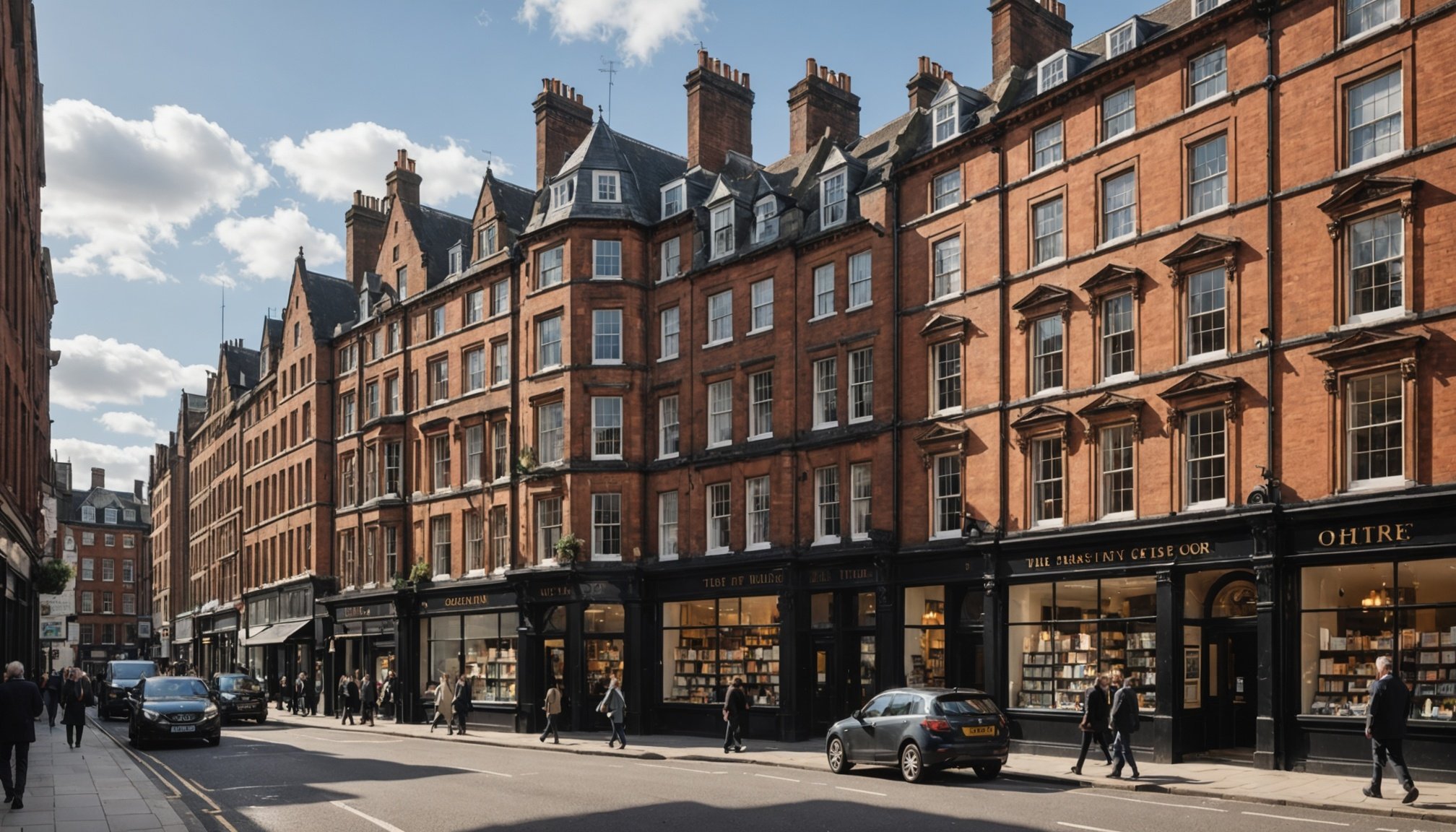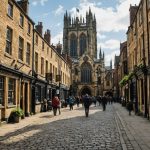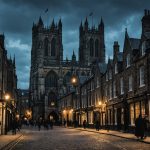Overview of British Publishing History
Exploring the rich British publishing history reveals key literary movements and their profound historical context. The Renaissance sparked a cultural rebirth in literature, with figures like William Shakespeare reshaping British publishing history. This era marked a shift towards humanism, influencing works profoundly and setting a course for future literary endeavors.
The rise of the British publishing history continued through critical movements like Romanticism and Modernism, each bringing distinct styles and themes. Romanticism embraced nature and emotion, producing luminaries such as William Wordsworth. In contrast, Modernism, as seen in the works of Virginia Woolf, introduced experimental forms and psychological depth.
In the same genre : Discover Top Medieval Festivals in the UK for an Authentic British Crafting Experience!
Important milestones in British publishing history include the establishment of iconic publishing houses in the UK. These publishers have played pivotal roles in disseminating influential works, which continue to shape literature globally. The shifting trends in publishing also reflect broader societal changes, underscoring the dynamic relationship between literature and historical events.
Major authors have profoundly influenced British publishing history, shaping trends and redefining genres. Their impact is evidenced in the ongoing evolution of literature, revealing a persistent dialogue between past and present. Understanding these literary movements provides insights into the historical context that has shaped the UK’s rich literary tradition.
In the same genre : Discover the Rich Heritage of British Breweries: Engaging Interactive Tours for History Enthusiasts!
Top UK Cities with Literary Significance
Exploring UK literary cities offers insight into the regions that have shaped British literature. These cities are significant due to their connections with famous authors and their rich array of literary landmarks.
London
London is a cornerstone in the landscape of British literature, offering a profound historical context. It has been a hub for several famous authors, including Charles Dickens and Virginia Woolf. Their works are deeply intertwined with the city’s essence. Visitors can explore key literary landmarks such as the Charles Dickens Museum, providing a glimpse into the period’s social landscape.
Edinburgh
Renowned for its literary heritage, Edinburgh is where J.K. Rowling penned the Harry Potter series. The city celebrates its literary significance with landmarks like the Writers’ Museum, honouring literary giants such as Robert Burns and Sir Walter Scott. Edinburgh’s historic atmosphere richly complements its modern literary events.
Oxford
Oxford’s contribution to literature is monumental, with its prestigious university nurturing numerous famous authors. Scholars like J.R.R. Tolkien and C.S. Lewis drew inspiration from the city’s academic environment. The Bodleian Libraries are a must-see for those interested in the scholarly historical context that influences British literature.
Must-See Literary Landmarks
Exploring literary landmarks offers unique glimpses into the historical sites that have shaped British literature. Each landmark tells a story, offering immersive experiences that connect visitors to the past.
London: Literary Treasures
In London, one must not miss the British Library. Housing an extraordinary collection, it includes the Magna Carta and Shakespeare’s First Folio. A visit offers insight into literary evolution through centuries. Dickens fans will relish the Charles Dickens Museum, which provides a peek into his life and works.
Edinburgh: Celebrating Heritage
Edinburgh boasts the Writers’ Museum, dedicated to Robert Burns and Sir Walter Scott. Set in a quaint 17th-century building, the museum beautifully captures Scotland’s literary heritage. Visitors can also explore the ancient tombs at Greyfriars Kirkyard, a hauntingly inspiring spot for many authors, including J.K. Rowling.
Oxford: Academic Wonders
The Bodleian Libraries in Oxford are essential for those delving into British literature’s scholarly side. Its architecture and extensive manuscripts make it a haven for bibliophiles. Additionally, don’t miss the Eagle and Child Pub, famous for hosting the literary group Inklings, including J.R.R. Tolkien and C.S. Lewis.
Suggested Literary Itineraries
Creating the perfect literary itineraries involves thoughtful travel planning, ensuring you experience each destination’s unique charm. Whether you prefer weekends filled with exploration or a week-long adventure, tailored guided tours can enrich your journey.
Weekend Literary Tour
For a compact weekend escapade, start in London, visiting the British Library and Charles Dickens Museum. These venues offer insight into British publishing history. Next, head to Oxford to explore the Bodleian Libraries and follow in the footsteps of famous authors like J.R.R. Tolkien.
Week-Long Publishing History Journey
Immerse in a thorough exploration by dedicating a week. Kick off in Edinburgh, celebrating its literary significance at sites like the Writers’ Museum. Continue to London for more landmarks, including the Shakespeare’s Globe. Finish in Oxford, indulging in its academic atmosphere.
Themed Literary Walks
Enhance your experience with themed literary walks, focusing on iconic figures or genres. Explore historical sites and delve into the narratives that unfolded there.
Carefully planning your routes and schedules ensures that you make the most of guided tours and insights from passionate local experts, transforming your travel into an enriching literary pilgrimage.
Events and Festivals Celebrating Literature
Exploring literary events across the UK presents a unique opportunity to engage with Britain’s rich literary tradition. Each year, several cities host vibrant festivals celebrating the works of famous authors and emerging talent alike. These gatherings are not only celebrations of literature but also forums for meaningful discussion and appreciation of literary significance.
Edinburgh International Book Festival
Set in the city’s charming Charlotte Square, this renowned festival brings together a diverse range of authors and thinkers. It features author talks and interactive sessions, offering a window into contemporary literature trends and influences.
The Hay Festival
Held in the idyllic town of Hay-on-Wye, this festival has gained a reputation for its engaging mix of literature, innovation, and art. Attendees can enjoy both panel discussions and solo reading sessions that delve into the historical context of famous works.
Bath Literature Festival
Known for its eclectic programme, this festival hosts a plethora of activities that highlight the literary significance of British authors. It includes workshops and readings that reflect on both classic and modern contributions to the literary canon.
Participating in these literary events allows visitors to immerse themselves fully in the UK’s expansive literary culture.
Practical Travel Information
When planning your literary journey across UK literary cities, it’s essential to consider practical travel tips for a seamless experience. Choosing the right accommodations ensures that you stay close to vital literary landmarks, saving time and enhancing your exploration.
Conveniently located hotels or charming guesthouses often offer a mix of comfort and proximity, allowing you swift access to sites of literary significance in cities like London, Edinburgh, and Oxford. Look for places that provide easy access to local transportation options, such as buses and trains, making city-hopping a breeze.
Inter-city travel can be both economical and efficient. The UK’s well-connected rail network offers regular services between major literary hubs, ideal for itineraries covering multiple destinations. Booking tickets in advance can help secure the best rates and ensure a smooth journey.
Additional travel tips include using local transit passes, which can provide unlimited travel within cities and might include discounts at certain literary attractions. Always check the opening hours of literary landmarks and consider guided tours to enrich your visits with local insights, making your trip both enjoyable and informative.











